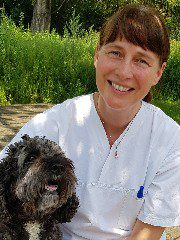Pre-Congress Workshops
Pre-Congress Workshops at WSAVA 2025: Essential Insights for Veterinary Professionals
Join us for two in-depth pre-congress workshops at WSAVA 2025, designed for veterinary professionals seeking to enhance their knowledge in specialized areas. These workshops offer unique opportunities to learn from leading experts and engage in thought-provoking discussions on critical topics in veterinary science.
If you already are register to attend WSAVA25 and wish to add a workshop, please contact us: reg_wsava25@kenes.com.
Pre-Congress Seminar 1
|
WSAVA International Workshop on Breeding & Genetics of Healthy Cats
Sponsored by:
 |
|
|---|---|
| September 24, 2025 Rio de Janeiro, Brazil | |
| 9:00-17:00 | Registration: open to everyone |
| Limit | 100 pax |
| Cost per participant | 50 USD |
| Location | Room Rio de Janeiro 1 + 2 (Lagune Hotel) |
| Preliminary program | |
| 9:00-9:10 | Welcome & Introductions: Jerold Bell |
| 9:10-9:50 | Feline Genetics Unfurled: Decoding Genetics from Coat Colors to Diseases: Leslie Lyons |
| 9:50-10:30 | Different Flavors of Genetic Tests: Pros, Cons and Interpretations: Leslie Lyons |
| 10:30-10:50 | Break |
| 10:50-11:30 | Feline Genetic Diseases: Pawsibilities for health through genetic testing and screening: Petra Černá |
| 11:30-12:30 | Discussion/Q&A All HDC Members & Speakers |
| 12:30-14:00 | Lunch |
| 14:00-14:40 | Tailored Wellness: Breed and Body-Type Specific Disease Screening: Jerold Bell |
| 14:40-15:20 | The Cost of Beauty: Health, Welfare and Ethical Concerns in Cat Breeding: Yaiza Gómez Mejías |
| 15:20-15:40 | Break |
| 15:40-16:30 | Responsible breeding and infectious diseases in cats – including FIP, use of antivirals and stress management in multi-cat households: Petra Černá & Alexandre Daniel |
| 16:30-17:30 | Discussion/Q&A All HDC Members & Speakers |
Speakers

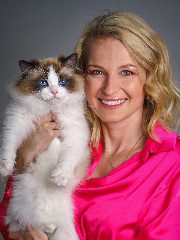
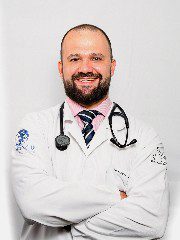
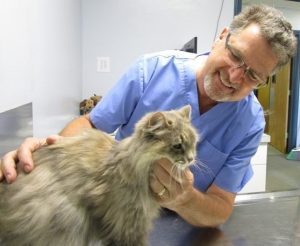
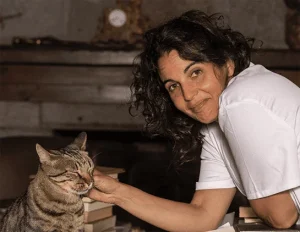
Pre-Congress Seminar 2
|
WSAVA Pre-Congress Workshop on Reproduction Control in Dogs & Cats
Sponsored by:
 |
|
|---|---|
| September 24, 2025, Rio de Janeiro, Brazil | |
| 8:00-16:00 | Registration: open to everyone |
| Limit | 40 pax |
| Cost per participant | 40 USD |
| Location | Room Sao Paulo (Lagune Hotel) |
| Preliminary program | |
| 8:00-9:00 | Venue opens/registration |
| 9:00-9:15 | Welcoming remarks: Michelle Kutzler |
| 9:15-9:30 | Why we need reproduction control in dogs and cats? Michelle Kutzler
Summary: In many parts of the world, numbers of dogs and cats exceed the number of available homes and/or the community/environment can sustain. This overview will focus on how reproduction control is an important tool for population control. |
| 9:30-10:30 | Health benefits of removing the gonads: Sabine Schäfer-Somi
Summary: The WSAVA Reproduction Control guidelines provided an objective review of the benefits and detriments of gonad removal. Removing the gonads for sterilization is still an essential part of reproduction control. This lecture will focus on the benefits of gonad removal for sterilization. |
| 10:30-10:45 | Coffee break |
| 10:45-11:45 | Health detriments of removing the gonads: Kurt de Cramer
Summary: Whilst reproduction control has always centered around gonadectomy, this practice is not without consequences. This talk discusses the complex factors to consider in the decision-making of spaying and neutering companion animals. It highlights both the benefits and potential drawbacks. The need for careful consideration of individual circumstances when making decisions about spaying and neutering will be emphasized. |
| 11:45-12:00 | Panelist discussion on health benefits and detriments of removing in dogs and cats: All speakers |
| 12:00-12:45 | Lunch |
| 12:45-13:45 | Gonad sparing surgical methods for reproduction control in dogs and cats: Rob McCarthy
Summary: Surgical sterilization by hysterectomy (ovary sparing spay) in females and vasectomy in males provides guaranteed sterility without the potential detrimental effects from loss of gonadal hormones. These procedures are appropriate for all general practitioners currently performing traditional surgical sterilization. Technical aspects and nuances of the procedures, as well as early results, will be discussed. |
| 13:45-14:45 | Non-surgical methods for reproduction control in dogs and cats: Stefano Romagnoli |
| 14:45-15:00 | Coffee break |
| 15:00-16:00 | Decision-making for reproduction control: Natali Krekeler
Summary: This talk discusses the complex factors to consider in the decision-making of spaying and neutering companion animals. It highlights both the benefits and potential drawbacks. The need for careful consideration of individual circumstances when making decisions about spaying and neutering will be emphasized. |
| 16:00-16:15 | Decision-making for reproduction control: All speakers |
| 16:15-16:30 | Concluding remarks: Michelle Kutzler |
| 16:30 | Conclusion of workshop |
Speakers


